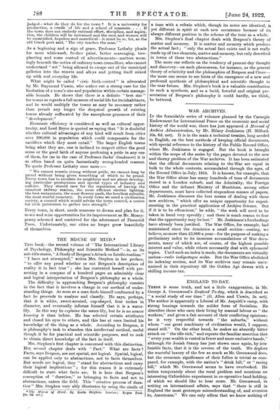WAR ARCHIVES.
Ix the formidable series of volumes planned by the Carnegie Endowment for International Peace on the economic and social history of the world war, there has just appeared A Manual of Archive Administration, by Mr. Hilary Jenkinson (H. Milford, 10s. 6d. net). It is in the main a technical treatise, long needed in English, on the best methods of keeping official documents, with special reference to the history of the Public Record Office, where Mr. Jenkinson is engaged. But the book is brought within the scope of the series by the pages devoted to the new and thorny problem of the War archives. It has been estimated that the official documents relating to the War are equal in bulk to the whole contents, accumulated through the ages, of the Record Office in July, 1914. It is known, for example, that the War Office alone has many hundreds of tons of documents stored in a London suburb, and the Admiralty, the Foreign Office and the defunct Ministry of Munitions, among other departments, must have collected stupendous masses of papers. Mr. Jenkinson discusses the best means of dealing with these new archives, " which offer an unique opportunity for experi- menting in the practical application of Archive Science. But if it is to be efficacious," he adds, " the work will need to be taken in hand very speedily ; and there is much reason to fear that the opportunity may be lost." Mr. Jenkinson's forebodings have already been justified. The War Office, for example, had maintained since the Armistice a small section—costing, we believe, no more than £3,000 a year—for the purpose of making a preliminary index to its immense accumulations of War docu- ments, many of which are, of course, of the highest possible interest and value, while others necessarily deal with ephemeral topics. Until such an index is made, the documents are virtually useless--rudis indigestaque moles. But the War Office abolished its indexing section, and its War archives may remain unex- amined in their repository till the Golden Age dawns with a shilling income-tax.


































 Previous page
Previous page